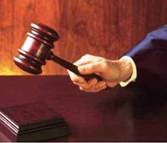US judge dismisses obstruction charge against BP executive over Gulf spill
By TOM FOWLER
A federal judge has dismissed a criminal charge against a former BP executive that alleged he tried to obstruct a Congressional investigation into the Deepwater Horizon incident by lying about the amount of oil flowing from the well.
Prosecutors said the executive, David Rainey, lied about the rate of oil leaking from a blown-out well in the Gulf of Mexico to members of the House Energy and Commerce Committee during a May 4, 2010 closed-door meeting and in his responses to a May 14 letter sent by Rep. Ed Markey (D-Mass.).  The blow-out took place in April 2010, resulting in 11 deaths and in the worst offshore oil spill in US history.
The blow-out took place in April 2010, resulting in 11 deaths and in the worst offshore oil spill in US history.
Mr. Rainey said in both instances the estimated flow was about 5,000 bpd, but internal BP documents from the time showed the company believed the rate was likely much higher.
In a ruling Monday, US Southern District of Louisiana Judge Kurt Engelhardt agreed with Mr. Rainey's attorneys that the meeting and the letter didn't constitute a formal Congressional inquiry, and dismissed the charge.
The flow rate issue is sensitive because civil fines that BP will have to pay under the US Clean Water Act are based in part on the number of barrels spilled. The final government estimate put the rate at between 53,000 and 62,000 bpd of oil, for a total of about 4.9 million bbl spilled.
A judge's ruling earlier this year cut that top spill size to 4.1 million bbl after giving BP credit for the oil it successfully siphoned from the well. That could mean fines ranging from $4.5 billion to $17.6 billion based on BP's degree of culpability for the accident, but the company has argued the fines would likely be well below $5 billion.
BP agreed to plead guilty to obstruction of Congress for Mr. Rainey's conduct as part of a $4.5 billion criminal settlement with the Justice Department announced in November.
A second charge, that Mr. Rainey lied to investigators during a 2011 interview about how he calculated the spill rate, still stands. He could face up to 5 years in prison if convicted.
Brian Heberlig, an attorney for Mr. Rainey, said he was gratified by the ruling and believes the other charge should also be dismissed.
"The second count is related to investigating conduct that is now deemed not a crime," Mr. Heberlig said. "More than 90% of their case was on count one."
A spokesman for the Justice Department said it is reviewing the decision and declined further comment.
Mr. Markey said in a statement that the Justice Department should appeal the decision.
"When a judge undercuts Congress' ability to keep companies like BP honest, he undercuts the voice of Americans everywhere," Mr. Markey said. "This was a Congressional investigation, plain and simple, and this kind of narrow and off-the wall interpretation of how Congress investigates wrongdoing is deeply troubling."
Dow Jones Newswires






Comments